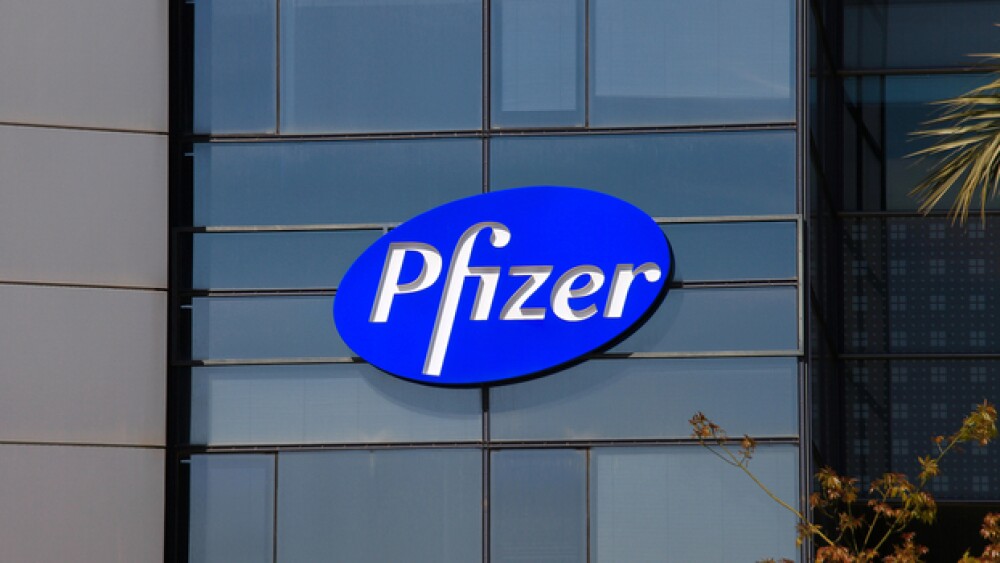Nektar Therapeutics, based in San Francisco, and New York-based Pfizer are teaming up to evaluate combination regimens in several cancer settings. Those include metastatic castration-resistant prostate cancer (mCRPC) and squamous cell carcinoma of the head and heck (SCCHN).
StockStudio / Shutterstock.com
Nektar Therapeutics, based in San Francisco, and New York-based Pfizer are teaming up to evaluate combination regimens in several cancer settings. Those include metastatic castration-resistant prostate cancer (mCRPC) and squamous cell carcinoma of the head and neck (SCCHN).
As part of the collaboration, they will evaluate Nektar’s lead immuno-oncology candidate, NKTR-214 with avelumab. Avelumab is a human anti-PD-L1 antibody developed jointly by Germany’s Merck KGaA and Pfizer. They will also evaluate NKTR-214 with Pfizer’s talazoparib, a poly (ADP-ribose) polymerase (PARP) inhibitor and with enzalutamide, an androgen receptor inhibitor developed by Pfizer and Astellas Pharma.
NKTR-214 is a CD122-biased agonist. It is designed to expand specific cancer-fighting CD8+ effector T-cells and natural killer (NK) cells in the tumor microenvironment. It also increases expression of PD-1 on the immune cells.
Under the deal, Pfizer will launch a Phase Ib/II clinical trial to evaluate the drugs both in combinations and separately. The two companies and the various partners will each maintain global commercial rights to their own drugs.
“We are looking forward to combining Nektar’s unique CD122-biased agonist with a number of agents with distinct mechanisms,” stated Chris Boshoff, senior vice president of Immuno-Oncology, Early Development and Translational Oncology at Pfizer. “We hope to achieve our goal of improving the care of patients with difficult-to-treat cancers with unique immunotherapy-based regimens.”
On Friday, the Food and Drug Administration (FDA) approved Pfizer’s Lorbrena (lorlatinib), a third-generation anaplastic lymphoma kinase (ALK) tyrosine kinase inhibitor (TKI) in ALK-positive metastatic non-small cell lung cancer (NSCLC) whose disease has progressed on crizotinib and at least one other ALK inhibitor for metastatic disease, or whose disease has progressed on alectinib or ceritinib as the first ALK inhibitor for metastatic illness.
This is considered a follow-up to Pfizer’s first ALK inhibitor, Xalkori, which was launched in 2011. However, Xalkori sales have faded as newer ALK inhibitors hit the market, such as Novartis’ Zykadia and Takeda’s Alunbrig.
Lorbrena can be prescribed for patients whose disease has progressed after receiving Roche’s Alecensa and Novartis’ Zykadia.
“Over the years, Pfizer has transformed research, management and treatment for patients with ALK-positive non-small cell lung cancer,” stated Andy Schmeltz, global president, Pfizer Oncology. “Building upon our extensive understanding of tumor complexity and treatment resistance, Lorbrena was discovered by Pfizer scientists and developed specifically to inhibit tumor mutations that may drive resistance to other ALK tyrosine kinase inhibitors.”
Pfizer noted that the Lorbrena approval was the third approval in three months for Pfizer’s oncology unit. Previous approvals include its PARPi Talzenna, which was approved in October for germline BRCA-mutated, HER2-negative breast cancer and Vizimpro, which was approved in September for first-line treatment of metastatic NSCLC with epidermal growth factor receptor (EGFR) exon 19 deletion or exon 21 L858R substitution mutations.
In a September statement, Mace Rothenberg, chief development officer for Oncology, Pfizer Global Product Development, said, “Today’s approval of Vizimpro is a direct result of our commitment to precision drug development and improving outcomes for patients with mutation-driven lung cancers. Pfizer now has two medicines that can tackle three different forms of mutation-driven lung cancer: Xalkori for patients with ALK-positive or ROS1-positive non-small cell lung cancer and Vizimpro for patients with EGFR-mutated non-small cell lung cancer.”





